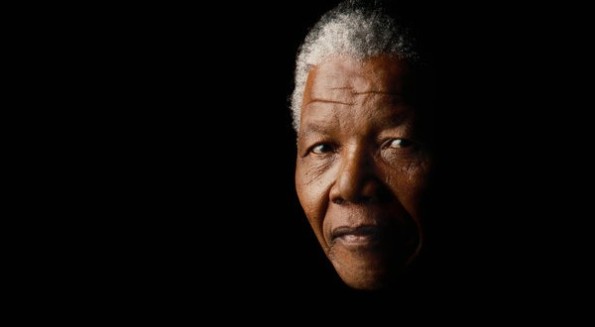 For Josefina, a 71 year-old housewife and south-of-Havana local, first comes Jesus Christ then Mandela. She’d been cooking supper when the 1993 Nobel Peace Prize winner’s death broke through on the radio.
For Josefina, a 71 year-old housewife and south-of-Havana local, first comes Jesus Christ then Mandela. She’d been cooking supper when the 1993 Nobel Peace Prize winner’s death broke through on the radio.
“Among books set by my bedside, I have a biography of Mandela which I’ve read three times. Jesus Christ, Mandela and Martí are the three men whose principles and convictions I most respect,” is what Josefina tells us while sifting for the best grains of rice to make her supper dish.
On the island, authorities have officially declared three days of national mourning following Mandela’s death, and President Raúl Castro has sent his message of condolence to South African President Jacob Zumba. In the missive, Castro II noted that, “one must not refer to Mandela in the past tense.” During our three days of national mourning, all government buildings and military compounds will fly the Cuban flag at half-mast.
Produced by Telesur Network, Cuban television station channel 6 aired a documentary about Mandela’s life. And just after 10 p.m., the station also broadcast the film Invictus starring Morgan Freeman in the role of Mandela.
On a scale from one-to-ten, if you ask any Cuban to pick and rate any idol, few would mention a modern political figure. Most would bet on celebrities, musicians, or sports figures like Lionel Messi or Cristiano Ronaldo.
In Cuba like in most nations around the world, politicians are rated very low. But when you speak about Mandela that is another thing.
Look, some people are loyal to Castro while others idolize Che. Ask anyone and many just simply hate both of them. But with Mandela something unique happens: Irrespective of ideology and religion, all revere him.
Niurka a Cuban doctor, spent two years volunteering her medical expertise in South Africa. “I was deep in South Africa, a great nation very rich and where people from different ethnicities coexist with different beliefs and different cultures. In spite of the differences everyone respects Mandela. After my return in 1997, I was involved in an event where Mandela shared a few words of gratitude with us. He was a cordial man who would look at a person’s eyes while he spoke to them. His diction was perfect and he was soft spoken which is something that caught my attention. I belong to that Cuban generation who grew up with Fidel Castro shouting slogans from a soapbox using sometimes profane language. Mandela’s image is forever engraved in my sight.
Even at the heart of his opposition, Mandela was able to gain considerable ground. And in Cuba, Antonio Rodiles — Director of Estado de Sats, a cultural and social project where diverse aspects converge, and perhaps the most promising Cuban dissident — considers that Nelson Mandela’s political legacy is nothing less than remarkable.
Rodile comments, “Following 27 years of imprisonment, Mandela’s message was about constructive dialogue and remained free of hatred. We could all stand to learn from him. Cuba is Mandela’s friend, but what’s more, he might also become the example our government needs so opposing factions can learn to mend ways and work on behalf of the Cuban nation like Mandela did when confronted with critical moments in South Africa’s development.”
At night on Avenida G in Vedado, youth of any sort — emo rockers, freaks, hard rockers, haggard hippies, reggaetoneros and Joaquín Sabina, Pablo Milanés or Fito Páez groupies — are loaded on Parkisonil pills and cheap rum but what they celebrate with irreverence and spontaneity is Mandela.
A life-long self-ascribed friki, Osmany, 36, hums a popular 80s tune which demanded the South African leader be set free, and also takes the opportunity to show me a tattoo on his back quoting the first black President of South Africa: ’What kind of freedom can you offer me when as people we are not granted the right to public assembly? Only a free assembly of men can negotiate.’ “Like Mandela, I too want to be a free man,” says Osmany.
Cuba is a country where no one agrees on anything and everyone insists on being right. But men like José Martí and Nelson Mandela are examples that live beyond the good and evil in us.
Iván García
Photo credit: Greg Bartley Camera Press, taken from the New York Times.
Translated by: Adriana Correa and JCD
7 December 2013
